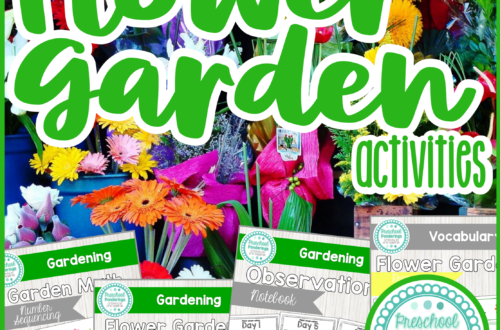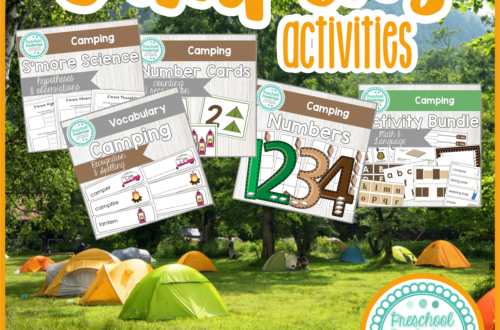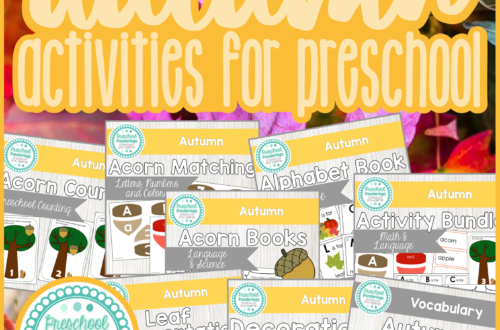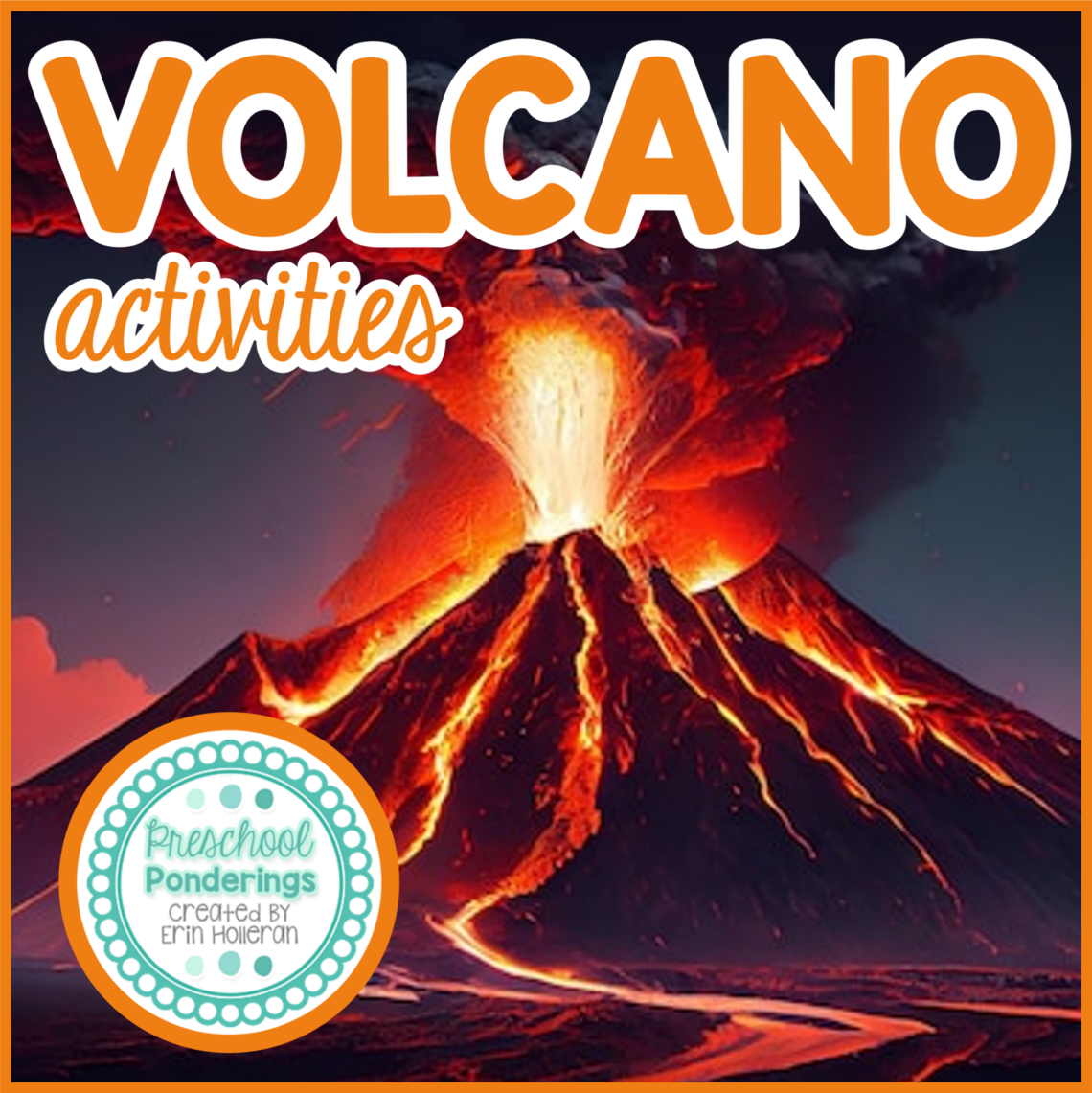
Preschool Volcano Theme
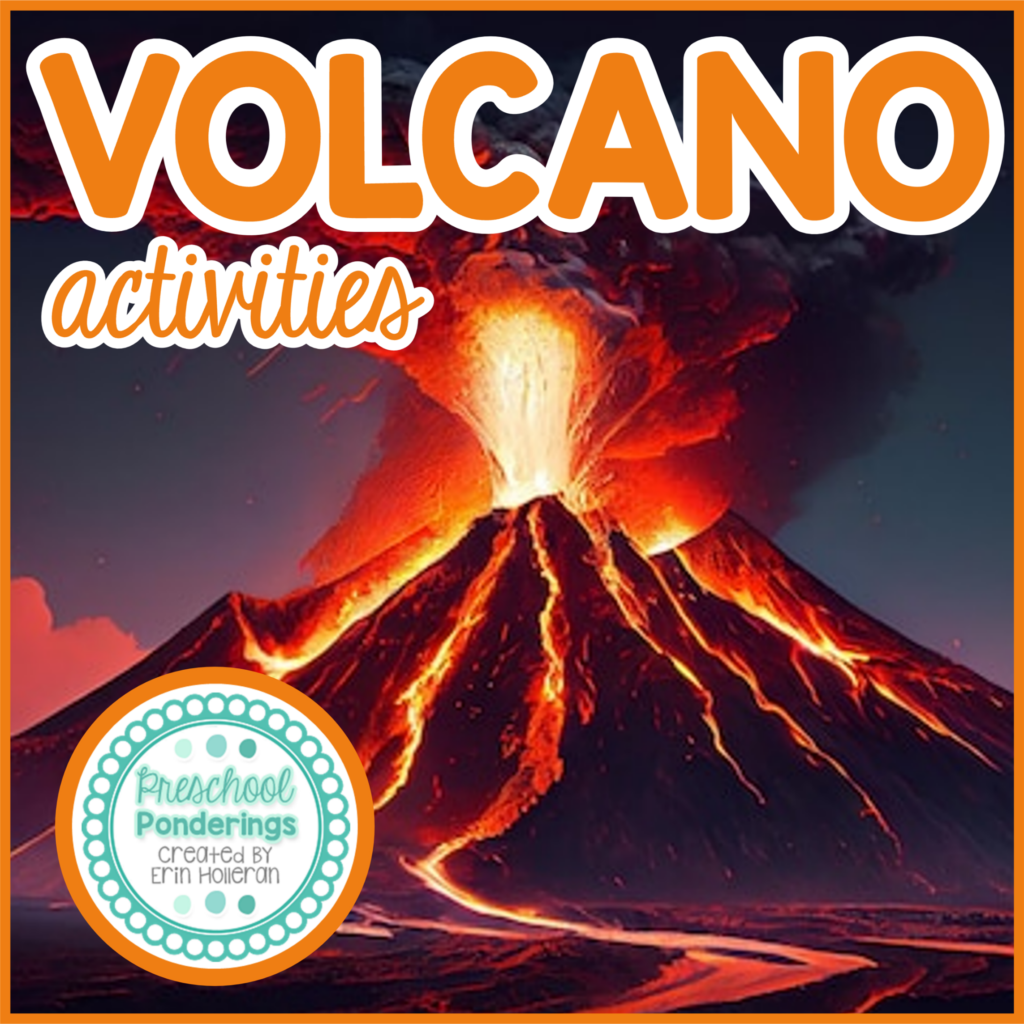
I’m a huge proponent of exploring themes that are relevant to the children you teach, but I also strongly believe that doesn’t always mean that they HAVE to be themes that children interact with in their everyday life in order to be relevant. If children are especially fascinated with a topic, to the point that it has become a regular topic of conversation in their classroom, then it is relevant in my eyes. This is where topics like dinosaurs, space, make-believe, wild animals, far away landscapes, etc. begin to become appropriate classroom themes. This week we’re tackling one of those topics; volcanos!
There are so many ways to explore volcanos that can truly be developmentally appropriate for preschoolers. Here are a few you might attempt:
The classic baking soda and vinegar volcano experiment is always a hit. This is an activity that can be done in many different ways, and it’s perfect for exploring very basic hypotheses and changing variables. Children could build volcanoes out of clay or sand and then fill these with baking soda and pour vinegar on top. You could also put out trays full of baking soda and bowls of vinegar colored with red, yellow, and orange food coloring, and have children “paint” by dropping eye-droppers of the colored vinegar on the baking soda.
Watch The Magic School Bus Blows It’s Top, which is available for free on YouTube. Ms. Frizzle’s adventures explain highly scientific topics in ways that children truly understand. The visuals, accompanied by the characters real-life questions bring volcanoes to life without making them scary.
Explore different types of rocks and talk about where they come from. While you likely can’t visit a volcano, it is definitely possible to get your hands on some igneous rocks that have come from one. Comparing this to the rocks that are natural to your area is a great opportunity for children.
Locate active and dormant volcanoes on a map of the world. Identify where you live and talk about how far it is to the nearest volcano. You’ll practice map skills and give children an understanding of just how big the world is – which is a hard concept for children this young!


